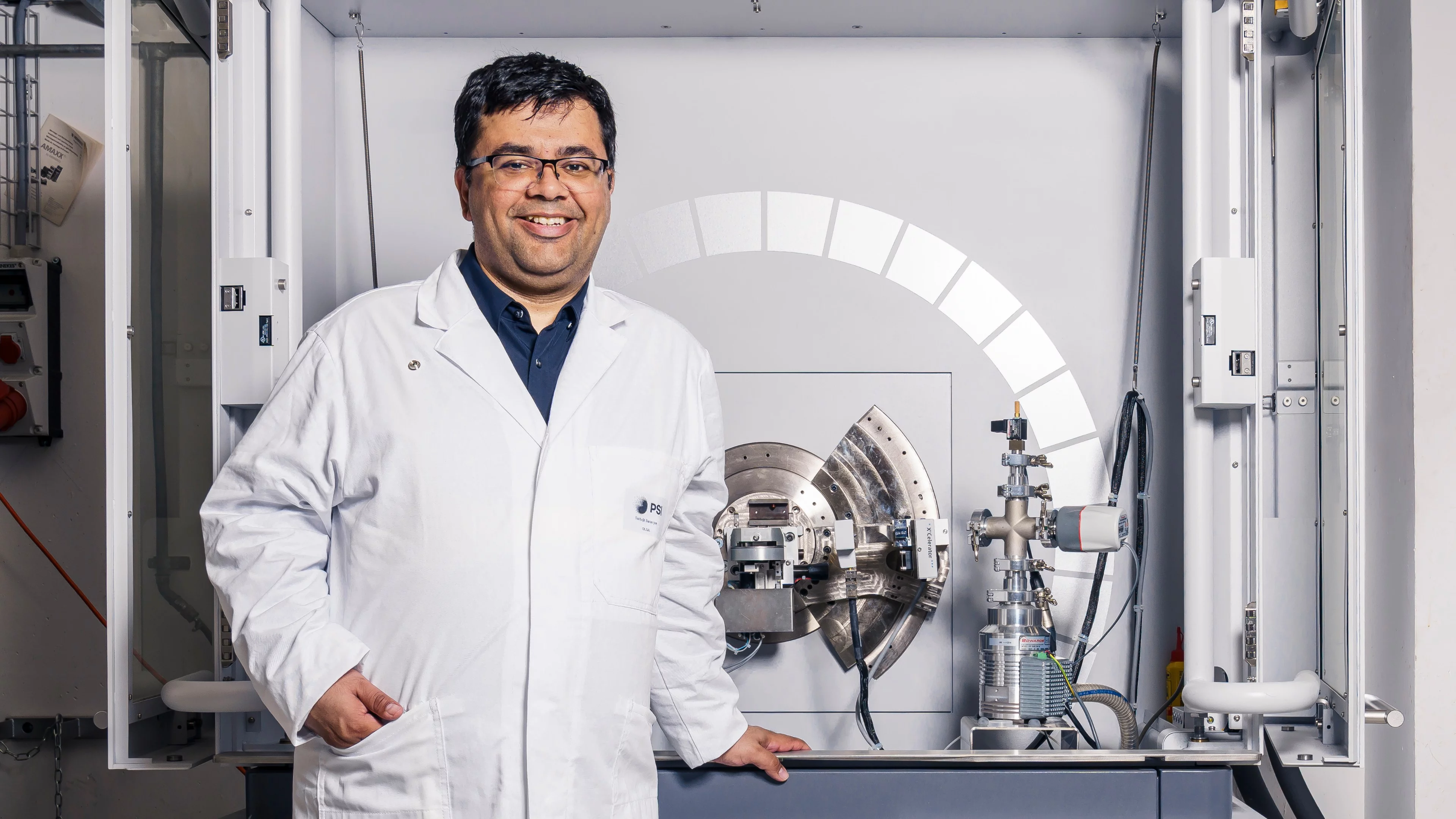ETH Zürich and the Paul Scherrer Institut PSI scientist Professor Sarbajit Banerjee has been named winner of the Royal Society of Chemistry’s Centenary Prize in recognition of brilliance in research and innovation.
Prof Banerjee won the prize for original insights into structure and chemical bonding far from equilibrium, and for excellence in communicating chemical principles underpinning clean energy to the public. and receives £5,000 and a medal.
Professor Banerjee is looking to develop a new approach for exploring the structure and chemical bonds of inorganic materials under extreme conditions. His research shows that the structure of a material is not solely determined by its chemical composition, but can often be controlled independently of its makeup. He has developed a set of predictive rules to identify new stable compound structures, created a wide range of chemical techniques for synthesising new structures, expanded our understanding of chemical bonds beyond standard conditions, and explored how unusual structural patterns in these materials can create new functionalities.
His ability to map material behaviour has improved our understanding of chemical bonding and has practical implications across many technologies, including designing components for lithium and ‘beyond lithium’ batteries, isotope separation for nuclear energy, brain-inspired computing for artificial intelligence, and solar fuel production.
After receiving the prize, Prof Banerjee said: “I am just hugely honoured to receive this prize, because it is recognition of the incredible work of several generations of students and postdoctoral researchers who have walked with me on this journey in science through the inevitable hills and valleys. I am grateful for their willingness to explore and advance ideas and concepts that are not mainstream, and to those of our partners in government and industry who have been willing to take a bet on us. This recognition from the Royal Society of Chemistry is also a humbling reminder of the importance of communicating the pivotal role of chemistry in shaping the lives we live and the world around us.”
Dr Helen Pain, Chief Executive of the Royal Society of Chemistry, said: “The chemical sciences cover a rich and diverse collection of disciplines, from fundamental understanding of materials and the living world, to applications in medicine, sustainability, technology and more. By working together across borders and disciplines, chemists are finding solutions to some of the world’s most pressing challenges. Our prize winners come from a vast array of backgrounds, all contributing in different ways to our knowledge-base, and bringing fresh ideas and innovations. We recognise chemical scientists from every career stage and every role type, including those who contribute to the RSC’s work as volunteers. We celebrate winners from both industry and academia, as well as individuals, teams, and the science itself. Their passion, dedication and brilliance are an inspiration. I extend my warmest congratulations to them all.”
The Royal Society of Chemistry’s prizes have recognised excellence in the chemical sciences for more than 150 years. This year’s winners join a prestigious list of past winners in the RSC’s prize portfolio, 60 of whom have gone on to win Nobel Prizes for their work, including 2022 Nobel laureate Carolyn Bertozzi and 2019 Nobel laureate John B Goodenough.
The Research and Innovation Prizes celebrate brilliant individuals across industry and academia. They include prizes for those at different career stages in general chemistry and for those working in specific fields, as well as interdisciplinary prizes and prizes for those in specific roles. Other prize categories include those for volunteers, those for in education (announced in November), the Inclusion & Diversity Prize, and the Horizon Prizes – which celebrate discoveries and innovations that push the boundaries of science.


